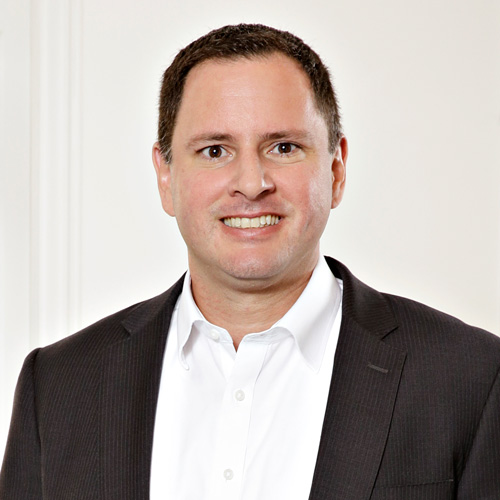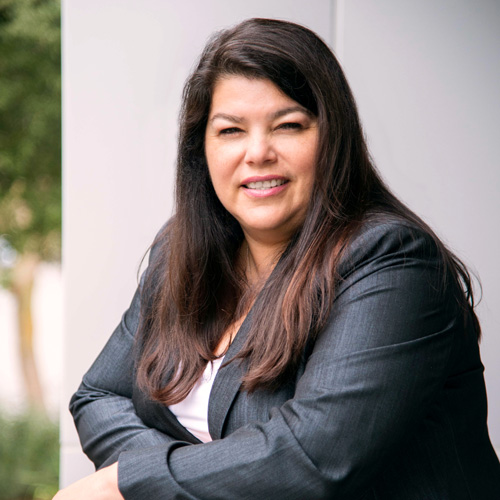Michael Rosales got his first job at Walmart in 1990 as a high school student, he simply needed some extra summer money and to save for college. He even submitted his application for the part-time job on the last day possible. He is now an HR leader for Southeastern Grocers.
“Applying at Walmart wasn’t what I’d call a serious career move. Honestly, I just wanted a job,” Rosales says. When asked if he could have ever anticipated that his summer job would morph into a twenty-two-year career with the retailer, ending with a high-ranking position in human resources, he laughs. “Uh, no. I would have never seen that coming.”
Michael Rosales on Transitioning Into HR
Michael Rosales draws on first-hand experience to offer best practices on making a transition to human resources from another department or sector.
Be patient.
“HR is not about a short-game strategy. If you’re used to the operations side and getting immediate feedback, you’ll have to adjust. In HR, you can’t just step in and solve everything immediately. You have to have a plan and some quick wins to build momentum, but it’s a long game that requires patience.”
Be an advocate for the employee.
“When I first got into HR, I didn’t realize that was such a large part of it. You have to truly be an advocate because you’re the person employees look to for help. It’s a primary part of the role.”
Stay connected to the business as much as possible.
“Reach out to different parts of the business to learn about what they do, why they do it, and develop an understanding of how all of these separate pieces come together. People will respond so much better and speak to you so much more openly about their needs because they know you’ve done the legwork to understand what their work entails.”
But come it did. After two years working in the photo center, Rosales expressed he wanted to do more. So his manager transferred him to a new store, giving the young man the opportunity to be the manager of the photo center there. He was twenty at the time, and Rosales says it was the first time it occurred to him that position could be more than “just a job.”
For the next twenty years, Rosales would make both lateral and vertical moves, incrementally moving up and learning all facets of operations while running stores in three different states. But soon, the traveling got the best of him. By his mid-twenties, Rosales was married with a son and daughter, and he found himself often leaving on Sunday and not returning until Friday. He worried that he was missing watching his children grow up, and he was transparent about this with upper management. The solution was to transfer Rosales to regional personnel, something he says he didn’t know to be excited about.
“HR was a very different world, and honestly, it wasn’t something I was thrilled to get into; I just didn’t want to travel as much,” he says. “I started in that mind-set, but I eventually came to realize that you could impact so many people in HR, and in ways that weren’t possible on the operations side.”
That being said, it wasn’t what Rosales would call an easy transition. After years on the operations side, he was used to thinking on his feet, putting out fires, and seeing immediate results. Feedback was instant—it was immediately clear whether something was working.
HR doesn’t operate that way; it can be six months before you know whether an initiative is successful. It was especially different in the early 2000s, when Rosales first joined HR. Processes were much slower then as opposed to now, when the department is seen as a crucial business partner.
Despite being very different than what Rosales had grown accustomed to, he stayed the course. Before long, Rosales was managing compensation. Immediately, he says, something felt markedly different.
“At first I thought: I move around the company every couple of years, learning new things, acquiring new skills, and I thought the comp role was just another iteration of that,” Rosales says. “But it really grabbed a hold of me, and when I left Walmart in 2015, I was still in that role. It was the first time I was really pleased with an area I was in, and I knew it was what I wanted to do. Something just clicked.”
Rosales has since taken all of his knowledge and know-how of both operations and HR to Southeastern Grocers, which owns the popular grocery stores BI-LO, Fresco y Más, Harveys, and Winn-Dixie. It’s the fifth largest traditional supermarket chain in the United States, and Rosales currently serves as its vice president of total rewards.
In this role, he oversees everything related to benefits, retirement, and savings, but his job also entails creating benefits that associates don’t just need but also want. On the compensation side, Rosales is interested in producing competitiveness in a way that’s not just about making money.
“The experience I was given at Walmart, the ability to move around and learn all parts of the business and develop new skills was invaluable to me, and I want to replicate that experience for other people,” Rosales says. “It doesn’t always have to be about upward movement; we undervalue lateral movements. I want people to be able to learn new skills that serve them in the long term. If it weren’t for that, I wouldn’t be where I am today.”

